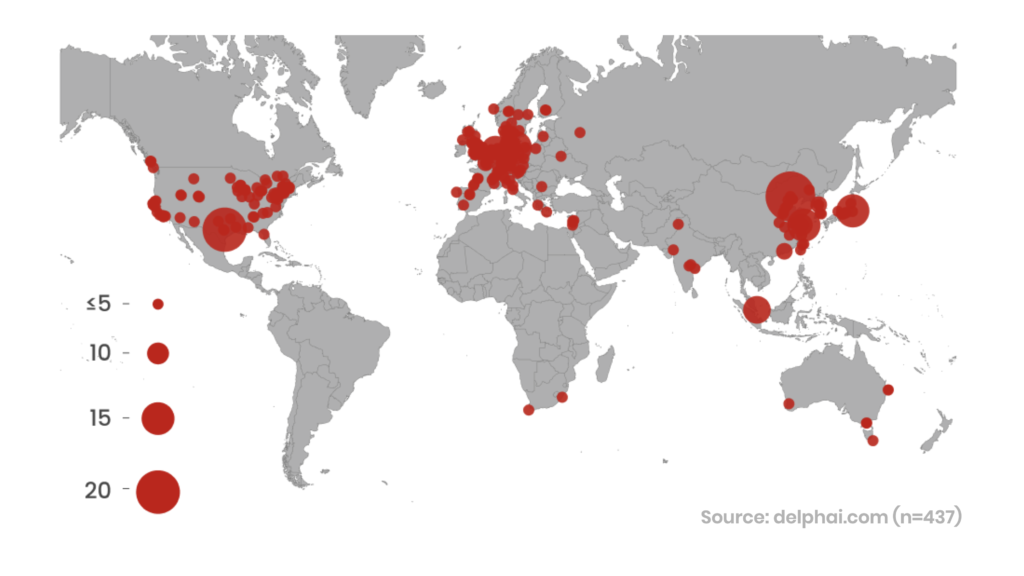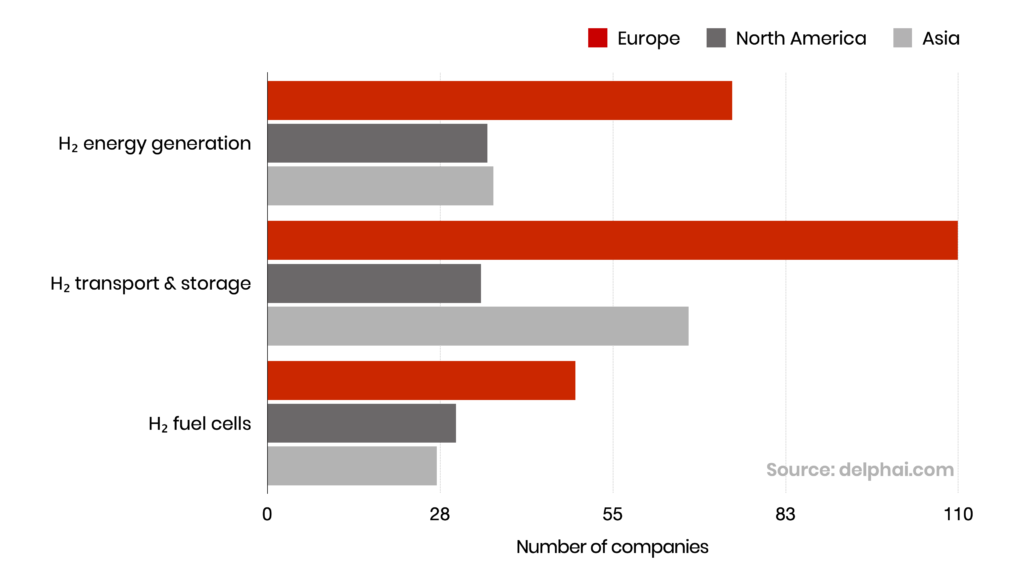1. Mutually inclusive. We are currently tracking 437 firms making hydrogen-centric products and solutions. One can quite easily spy the global appeal of hydrogen as a future fuel upon considering the shared pursuit by Europe, Asia, and the US in developing hydrogen innovations. Notably, while China and the US are clearly the most dominant players in their respective regions, activity in Europe is far better spread out throughout the continent.

2. European sensibilities. Whereas the Chinese and the Americans tend to take up most of the attention when it comes to future technologies in the likes of autonomous driving, Europe is currently the uncontested leader when it comes to hydrogen innovation. For each of the three most essential clusters of the hydrogen ecosystem — a) hydrogen production, b) transport and storage infrastructure, and c) hydrogen fuel cells in both mobile and stationary forms — European activity is ahead of the rest by quite some distance.

3. Bonding. As with electrification projects, hydrogen innovation can be a costly endeavour — making the field particularly suitable for a collaborative approach. Examples include:
- Nikola: The US firm makes trucks with battery drives and optional fuel cell hydrogen tech for additional range. It is currently negotiating with manufacturers to establish joint venture to produce a hydrogen fuel cell-integrated electric pickup truck, with an expected range of about 966 kilometers.
- SinoHytec: Along with Toyota and four other firms, this Chinese hydrogen specialist has also created a joint venture to develop fuel cell systems. With a 15% share in the venture, SinoHytec will be contributing its hydrogen know-how gained through cooperations with Hydrogenics (Canadian fuel cell manufacturer), and another joint venture called ‘United Fuel Cell System R&D’ the firm established along with Toyota and several Chinese automotive groups.
- PowerCell: In addition to making fuel cells for use in commercial vehicles, the Swedish Volvo spinoff struck a deal with Siemens in 2018 to jointly develop and manufacture fuel cells specifically for use in shipping — another major application area for hydrogen mobility.
About this briefing:
This briefing is a part of a delphai collaboration with Tagesspiegel Background, in which delphai’s artificial intelligence tools are used to provide Background with data insights on the technologies, companies, and applications that drive global innovation.
About delphai:
delphai is a market intelligence software that uses AI for the automatic analysis of market and technology developments. The software is used by companies to create insights that help them seize opportunities, manage risks, and make better decisions.
To learn more about this report, or how delphai can help your company grow, please get in touch through contact@delphai.com.
